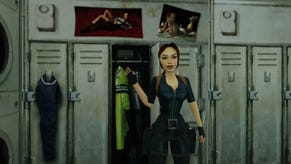EA: Syndicate reboot as FPS "the right choice"
Starbreeze and EA recount development, discuss pressure to please.
EA's decision to reboot the Syndicate with a first-person shooter was "the right choice", the gargantuan video game publisher has insisted.
Both publisher EA and Swedish developer Starbreeze have discussed the development of the game, which launched last week.
EA's decision to go first-person for today's Syndicate angered many fans of the much-loved strategy series and this, Starbreeze admitted, added pressure to the development.
But EA said it was the right choice, given how old those strategy games are - and the fact that they're still around.
"It's been nearly 20 years since the original Syndicate came out back in 1993," EA's producer on the game, Jeff Gamon, told Eurogamer.
"So a lot of people playing this game would probably have heard of the original Syndicate but not necessarily have played it. Obviously we get asked a lot about the reaction of fans of the original to us taking it into first-person direction. But we have to maintain that was the right decision.
"Why remake that classic in its original form when it's still out there? So with a whole new audience and tastes in video games, and a whole new suite of platforms to develop for, the game we made was the right choice."
For developer Starbreeze, which began pre-production on Syndicate with a small team in 2007, it knew from the start it faced an uphill battle convincing the veteran fans of the merits of the project.
"I knew that no matter what we did people would have strong opinions about it," lead co-op programmer Lars Magnus Lang said. "I can be the same with some games, also. I can still feel like, oh, did they have to do that?
"So, absolutely, it was quite a bit of pressure to live up to those expectations. We knew that we really couldn't do that. Unless we made it into an RTS they would not be happy. But if we had made it an RTS we would have made only those people happy."
"Unless we made it into an RTS they would not be happy. But if we had made it an RTS we would have made only those people happy."
Lars echoed Gamon's comment about Syndicate being new for most modern gamers.
"They might have heard of it, but most people haven't played it," he said. "We wanted to cater to those people also, to everyone. I'd rather make a really good game for our players and make them really enjoy it, than just make a copy of an old game with updated graphics. That's not that super fun for either the end user or us. That game already exists."
He pointed to the job Bethesda faced making Fallout 3, which caused controversy among hardcore Fallout fans for going first-person.
"I remember Fallout 3 also had the same thing. It is kind of forgotten now because it was great. Almost everyone liked it. There's always a few…
"We make it good on its own merits, then we take the universe, the setting, the cyberpunk, and really be true to the original Syndicate, and that's it. "
Syndicate endured a somewhat protracted development, although both EA and Starbreeze are keen not to go into too much detail.
We do know that Starbreeze went back to the drawing board after a year of production because both the developer and EA agreed the game that was being made wasn't right.
We also know that the game's co-op portion - perhaps its best - only came into place later on in development.
"We started off with a small team and probably going in the wrong direction," Gamon revealed. "It probably took a year before we figured out what we wanted to do with it and started building that in anger.
"We're grateful to have the opportunity to spend that time rather than being forced to get it done and out the door. It's not often you get the opportunity to take the time you need to make it as good as you'd like it to be."
So what, exactly, was the problem?
"From the early beginning it was a single-player game, a strong story-driven experience, which is Starbreeze's strength, with The Darkness and Chronicles of Riddick," Lars said.
"Then we tried out multiplayer and then we decided we really wanted co-op. We were always thinking about making a co-op experience but we didn't feel we had the technology for it from the start and we didn't really know how to integrate it.
"But then we said, what the hell, let's just make the co-op and see what we get. We like the results."
He added: "Originally we had mostly done single-player games. We started making co-op games with The Darkness and then with The Chronicles of Riddick. But to be honest, they were not super good multiplayer experiences. That was due to the Starbreeze engine, which was a single-player oriented engine. It was good at what it did but it needed some work to be able to handle the co-op."
Starbreeze's first effort - the game that was scrapped after a year of work, "was not as much cyberpunk maybe as we have now," Lars said. "And to be fair most of us didn't feel that did any justice to the original games. This was way before launch - way before rumours also. Very few knew what we were doing.
"But we ourselves wanted to do justice to those old games. That was quite important - it started to feel more and more right in what we were doing. Then we took that direction instead of some other direction where we took more freedom from the original concept. It started to feel more like the original in style."
Gamon said feedback to Syndicate's early designs helped convince the publisher to start again.
"It was a different kind of game. It was a different world. We weren't happy with the world. We weren't happy with what the agents were and what they meant. We were searching for that magic that makes it fun and interesting.
"It's hard to put my finger on exactly what it was. The litmus test is always showing it to other people. The first time you show them your concepts or even some rough draft software, if they don't react in a really positive way then you know you haven't got it right. So we just kept going back to the drawing board until we did."
"We weren't happy with the world. We weren't happy with what the agents were and what they meant. We were searching for that magic that makes it fun and interesting."
The development team even tried out competitive multiplayer - indeed it had it up and running at one point - but decided to scrap it in favour of a focus on co-op.
"Co-op really was working for us, so we put all of our eggs into it," Gamon said. "We started off with both co-op and competitive multiplayer. Co-op just was great fun. We really enjoyed it. Multiplayer didn't feel different or special in any way compared with co-op, so we focused everything onto co-op, and really expanded the scope. It's much bigger now than it was originally conceived to be in terms of the amounts of weapons, upgrades and breaches, and the number of maps, and the quality of production.
"We always maintained the co-op mode isn't just a mode, it's a completely different kind of game, with content in its own right. It's equal billing with the single-player."
He continued: "You don't need both. Co-op feels like Syndicate when you play it, whereas the competitive multiplayer mode just felt like another competitive multiplayer mode. Another reason to focus on co-op is the fact there's space in co-op to do it well, still. We realised very early on we had something that was very cool, so that was an ideal opportunity for us."
While Lars admits he's not 100 per cent satisfied with the finished game (he would have liked to have added "a bit more polish and a few more missions") he insists the development team are "proud" of their creation.
Gamon is equally philosophical: "I'm very happy with the end result," he said. "There is always stuff left on the table and various things you really thought would work and really wanted to make work but had to let go. There were various ideas for breaches. They're still good and there's still potential for them.
"It's never good enough. You always want to keep on tuning it and making it better. But we're really happy with it and really excited by it."
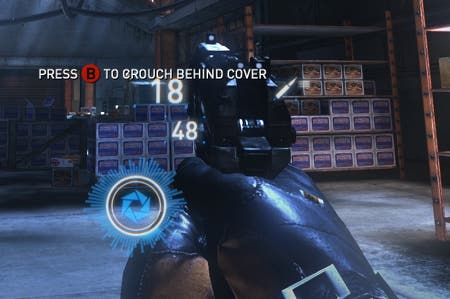

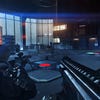
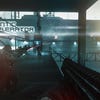
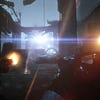
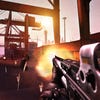
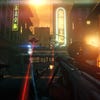
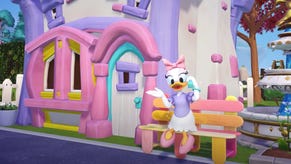
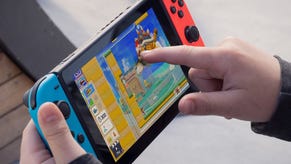

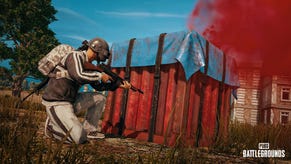

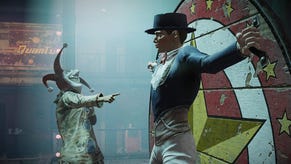
.png?width=291&height=164&fit=crop&quality=80&format=jpg&auto=webp)
